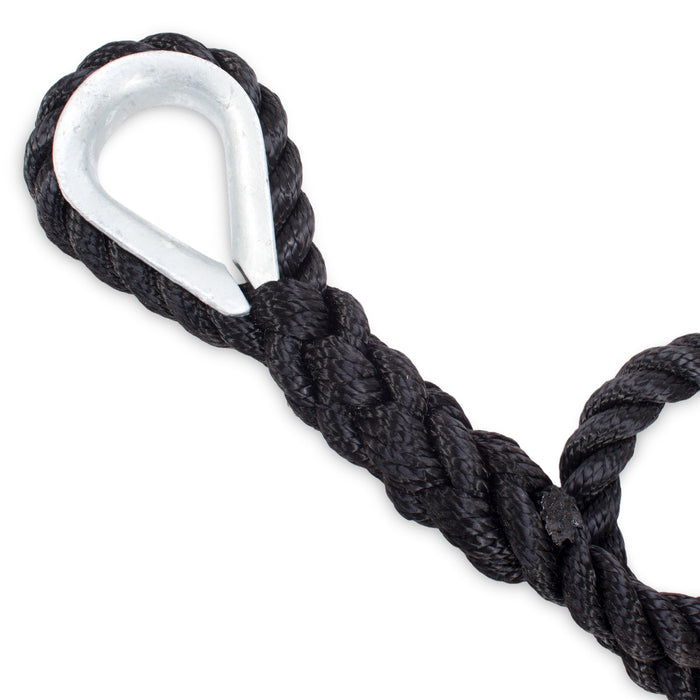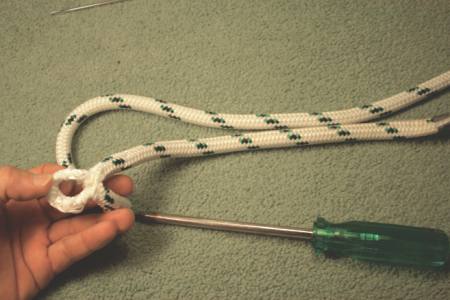

In order to create a tenacious 8-strand multiplait eye splice, make sure the eye is not twisted. Insert a spike into the gap beneath two running S-strands of the rope to make an opening. Use different colours for each strand type (e.g. Wind some tape around the strand ends so that you can perform the splicing process easier. To attire the eye with the sleeve, pass the protective sleeve through the rope, after the point of the rope marking.Įye splice on an 8-strand synthetic rope Unbraiding an 8-strand mixed ropeīefore starting on splicing an 8-strand mixed rope, split the strands into two pairs of S-strands and two pairs of Z-strands. To prolong the rope loop’s life, a protective sleeve is recommended to be used. This way, the inserted Z-strand pair runs along the adjacent two Z-strands, and the inserted S-strand pair runs along the adjacent two S-strands.

S-strands will be spliced with Z-strands and Z-strands will be spliced with S-strands. S-strands twist counterclockwise and Z-strands twist clockwise. Keep in mind that you’ll have to separate the S-strands from the Z-strands. Now you will need to unbraid the strands and prepare the ropes for splicing. Once you have decided on length, make markings on the rope strands and use some tape around the rope that will be unbraided next. Usually a length of 4 meters should suffice to make an eye splice. Starting with splicing, you will need to measure the desired length, plus some extra length for the splicing. The tools you need to perform an eye splice to a synthetic or high modulus rope are:
Eye splice how to#

One type of splicing is the eye splicing used to create a rope loop, mainly for mooring purposes.
Eye splice full#
While knots weaken the rope by more than 20% most of the time, splicing attains a rope’s full strength. Splicing is vastly used in marine life in order to make semi-permanent joints between two parts of a rope.


 0 kommentar(er)
0 kommentar(er)
